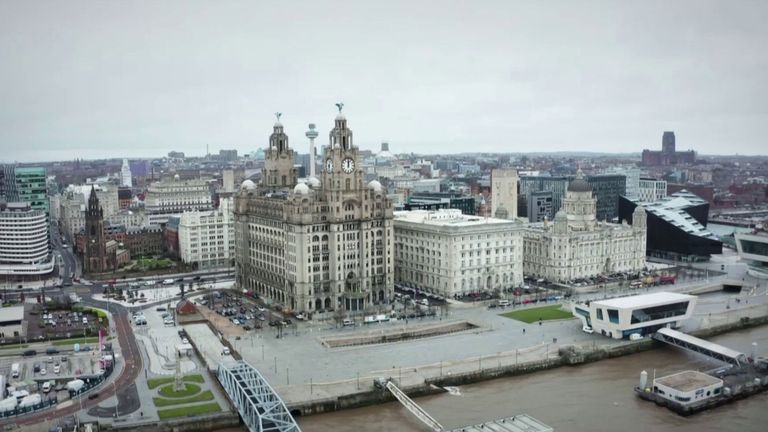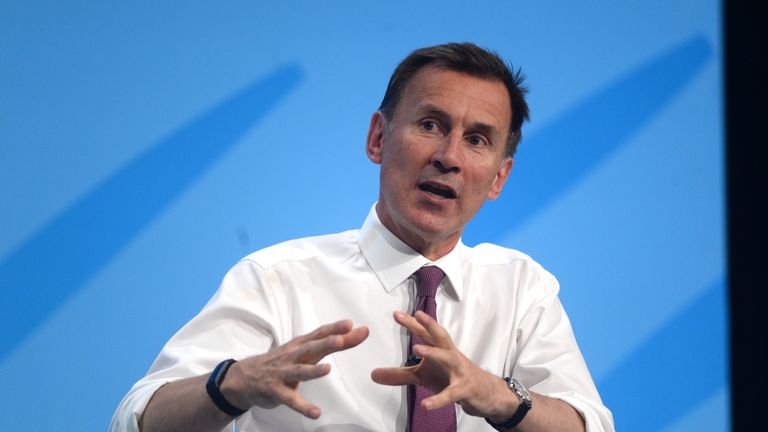Cancer survival rates in England risk going into reverse as the health service faces specialist staff shortages and the prolonged impact of the pandemic, MPs have warned.
A report by the health and social care committee pointed to staff having to ration treatment and said factors including reluctance of patients to come forward and late diagnosis which “will almost certainly mean that many lives will end prematurely”.
It accused the government of an “absence of a serious effort… to tackle gaps in the cancer workforce”.
That was jeopardising earlier diagnosis – which is the key to improving overall survival rates and catching up with countries such as Canada or Australia, the MPs said.
The report said 343,000 people could miss out on early cancer diagnosis for the period from 2019 to 2028 as the government falls short of its target for improvement in this area.
Diagnosing bowel cancer at stage 1 means that 90% of people will live for five years compared to just 10% of people diagnosed at stage 4.
But the MPs found that diagnosis, treatment and research was threatened by a shortage of 189 oncologists, 390 consultant pathologists and 1,939 radiologists, and that by 2030 the NHS would be short of 3,371 specialist cancer nurses.
Meanwhile, the report also pointed to the damaging impact that the pandemic “has had and is continuing to have on cancer services”.
Between March and September 2020, three million fewer people were invited for cancer screening than in the previous six months, the committee said.
It said that 36,000 fewer people in England and 45,000 across the UK began cancer treatment in the period from April 2020 to March 2021 than in previous years.
The report said: “Disappointingly, even the recent omicron wave of COVID-19 has seen more cancellations of vital cancer treatments indicating the NHS is still not able to access sufficient COVID-free treatment capacity to safeguard treatments and address the backlog.
“Without significant additional efforts we conclude there is a real risk that the gains in cancer survival will reverse.”
In 1972 only 30% of people were expected to survive their cancer for five years or more and by 2011 this had risen to 54%.
One-year survival rates have improved from 50% in 1972 to over 70% in 2017.
Jeremy Hunt, chair of the committee and himself a former health secretary, said: “Earlier cancer diagnosis is the key to improving overall survival rates however progress is being jeopardised by staff shortages which threaten both diagnosis and treatment.
“We do not believe that the NHS is on track to meet the government’s target on early cancer diagnosis by 2028.
“We are further concerned at the damaging and prolonged impact of the pandemic on cancer services with a real risk that gains made in cancer survival will go into reverse.
“A mother told us of her 27-year-old daughter’s five-month struggle to get a diagnosis of cancer – tragically she died three weeks after it came.
“Unfortunately, many more lives will almost certainly end prematurely without earlier diagnosis and prompt treatment.”
The report called on the government to develop a plan to address key diagnostic staffing gaps and investment levels as well as publishing a detailed analysis of its cancer backlog and an estimate of how much extra capacity is needed in the health service to address it.
An NHS England spokesperson said: “Cancer is a priority for the NHS and has been throughout the pandemic.”
The spokesperson also pointed to initiatives such as lung health checks in supermarket car parks, awareness campaigns and a blood test to detect more than 50 types of cancer before symptoms even appear.
A Department of Health and Social Care spokesperson said: “We recognise that business as usual on cancer is not enough – that’s why we have redoubled our efforts and are developing a 10-Year Cancer Plan to set out how we will lead the world in cancer care.”







